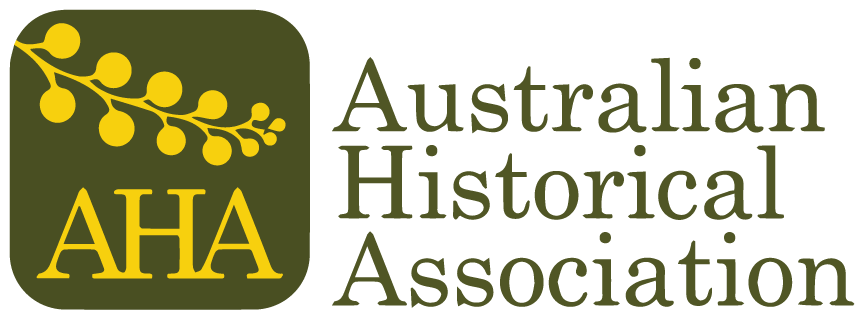The Australian Historical Association (AHA) is committed to integrity in the professional practice of history. In all its activities, the AHA is committed to inclusivity with regard to culture, class, ethnicity, faith, gender, gender expression and identity, sexual orientation, and physical abilities.
Discrimination, bullying and sexual harassment are unacceptable in the AHA and are unlawful under the following legislation:
- Sex Discrimination Act 1984 (Cth)
- Racial Discrimination Act 1975 (Cth)
- Disability Discrimination Act 1992 (Cth)
- Age Discrimination Act 2004 (Cth)
- Australian Human Rights Commission Act 1986 (Cth).
AHA Members found to have engaged in such conduct might be counselled, warned or disciplined as per the AHA Constitution. Severe or repeated breaches can lead to formal discipline up to and including exclusion.
The AHA Executive expects all members and participants to respect each other and to adhere to these principles of integrity, diversity and inclusion:
- Members shall at all times maintain their professional integrity and shall not allow personal convictions or beliefs or pressure from any source including employers, funding bodies, and informants to lead to the concealment or manipulation of evidence.
- Members shall be careful in any historical writing, teaching, public comment or testimony to indicate whether the statements made are an interpretation of facts or opinion or belief. Members shall avoid exaggerated or unwarranted statements.
- Members shall not refuse any reasonable request to share their knowledge or expertise, and shall as far as possible make available the sources to which they have had access.
- Members shall in published work or public statements make due acknowledgement of the work of others and of ideas and methods originating from others, including research assistants and students. Members shall not claim as entirely their own, work to which they contributed only a part.
- Members should respect the rights of oral history participants by acknowledging their contributions, or not, according to their informants’ wishes.
- Members shall respect the integrity of research materials and shall not damage or misappropriate materials whether publicly or privately owned.
- Members shall make reasonable efforts to ensure the preservation of archival materials that appear to be at risk through neglect, threat of destruction, or any other cause. In this regard, members should encourage the gift, loan or copying of source material to be held in the appropriate public repository.
- No member shall make false claims in a curriculum vitae, biographical notice, or the like. Members shall not invoke their professional standing or membership of the Association in support of statements in a field outside their area of expertise.
- Members shall plan and complete research projects as carefully as possible and shall provide employers, funding bodies, and clients with prompt, accurate, and honest reports.
- Members shall not, without due permission, use any confidential information acquired during the course of their work for personal advantage or for the advantage of a co-worker or third person. Nor shall members use such information to the disadvantage of an employer/client nor disclose such information, except where such disclosure may be required by law.
- Members shall apply strictly professional criteria to all matters of appointment, promotion and award without reference to culture, colour, sex, gender, sexual orientation, class, religion, family responsibilities, national origin, or beliefs.
- Members shall not knowingly misrepresent the competence or integrity of another member of the profession.
- Members shall take care to inform themselves of and to comply with all legal requirements relating to their work.
- Members should at all times be courteous, respectful, and considerate to others, including in the form of verbal communication, email, and social media interaction (see below).
- Members should, whenever appropriate, assist in the work and professional development of colleagues and students.
Social Media Policy
The AHA Facebook page and AHA website will contain a link to this Code of Ethics. The administrator/s of the AHA Facebook page and Twitter feed may exercise their discretion to block any member who breaches this Code of Ethics on the social media platforms of the AHA. The administrator will provide a brief explanation for doing so to the blocked member and the Executive, which should include screen shots of the particular breach of the Code of Ethics. The duration of the block is at the discretion of the administrator/s and the Executive.
Complaints
The policy and structure for addressing violations of the Code of Ethics will be clearly and prominently displayed on the AHA website.
Members should address their concerns to the AHA President via email or letter to PO Box 1118 Dickson ACT 2602.
Members who would prefer to report their concerns anonymously should do so via talktospot.com/.
The Executive Officer will provide an annual report of complaints received (with no names used to identify the complainant or the subject of the complaint). The report will be circulated to the Executive and made available to members upon request.
AHA Conference Conduct
The AHA is committed to providing a welcome and inclusive conference environment for our members, collaborators, communities and friends. At AHA conferences, the AHA Executive expects participants and attendees to uphold the Association’s Code of Ethics. Harassment or unacceptable behaviour will not be tolerated in any form or under any circumstance.
All participants in the annual Conference will be required to acknowledge the policy and their willingness to abide by it as part of the registration process.
